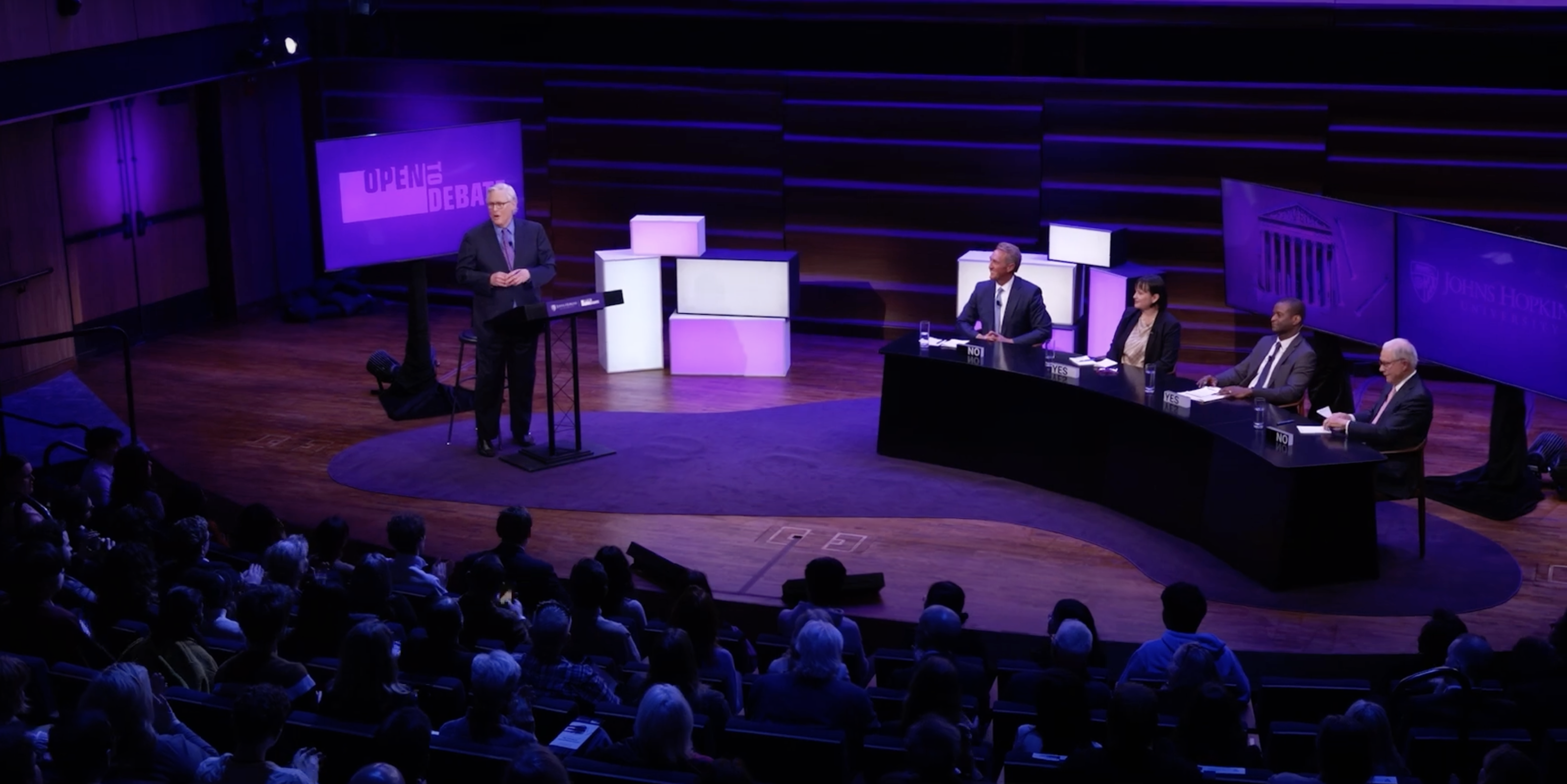Four legal experts judge Supreme Court reforms
The first Hopkins Forum considers changes to the nation’s highest court, including term limits, expansion, and a code of ethics

- Image Will Kirk
In the final months of his term, former President Joe Biden shared a plan to reform the Supreme Court in a Washington Post op-ed. In it, he called for implementing term limits for justices and creating a binding code of conduct. It’s one of dozens of proposals made in the past several years to reform the highest court in the United States.
Legal scholars and some of the nation’s top lawyers considered three judicial reform propositions during a recent debate at the Hopkins Bloomberg Center. The event, which featured former Attorney General Jeff Sessions; former Sen. Jeff Flake; Cristina Rodríguez, who co-chaired the Presidential Commission on the Supreme Court of the United States under Biden; and Columbia Law School professor Jamal Greene, was the first installment in the new Hopkins Forum series, a partnership between the Johns Hopkins University and Open to Debate.

Inaugural Hopkins Forum event
The first debate in The Hopkins Forum, a debate series from Johns Hopkins University and Open to Debate, features a discussion of the future of the U.S. Supreme Court. (Jan. 29, 2025)
Here is what the debaters’ had to say on three proposed reforms:
- Should the Supreme Court have term limits?
Rodríguez, now a professor at Yale Law School, argued justices should serve a single 18-year term. Their tenures would be timed so each president would appoint two justices during their four-year terms.
This approach will “regularize appointments and distribute political influence over the court in a way that reflects the electoral process. The current approach is random,” she said, pointing to the disparity between President Jimmy Carter, who appointed no justices during his term in office, compared to the three President Trump selected during his first term.
Flake, arguing against the proposal, said it was unnecessary because the average Supreme Court term is 16 years, two shorter than the suggested time. He also said it could further politicize the court if its future was up for election every four years.
Sessions, who served as attorney general from 2017-2018, expressed concerns about the proposal but ultimately said he could support a constitutional amendment enacting term limits if they “write it correct.”
- Should the Supreme Court have more than nine justices?
Just one of the four debaters, Greene, supported adding more members to the court.
“Of the three largest countries in the world, the U.S. has the smallest high court,” he said. “What this means is that the court’s justices have a relatively narrow range of perspectives, backgrounds, experiences, to decide cases.”
Rodríguez argued that expanding the Supreme Court would set a concerning precedent. She said as parties traded off power, each would expand the court.
“We should take as a cautionary tale what has happened in countries around the world where autocrats, in order to consolidate their power, have tried to expand the judiciary to pack it with their friends,” she said. “That is a sign of democratic backslide.”
- Should external ethics codes apply to the court?
Flake said the court should follow an internal ethics code, but not an external one.
“If Congress decides on an ethics code it would impose on the court and perhaps change them over time, depending on which way the court is leaning, that’s not a good thing,” he said.
In contrast, Rodríguez said an external code of ethics would bolster the public’s confidence in it.
“[The public’s confidence] is the crucial mechanism for ensuring that the Supreme Court’s decisions actually become the law of the land,” she said. “And the perception by the public that judges are the ones who police their own conduct is one that undermines public confidence.”